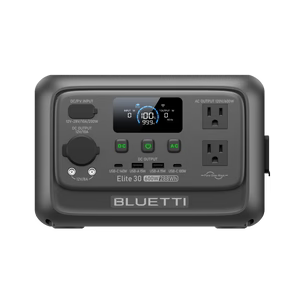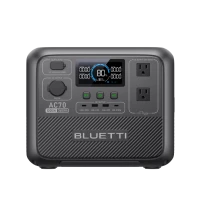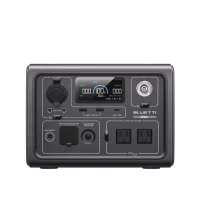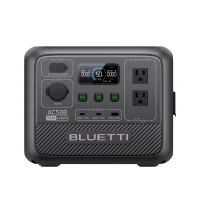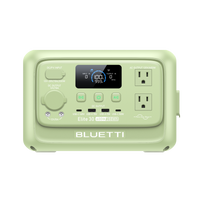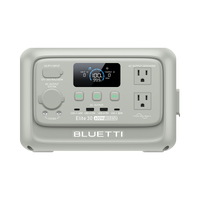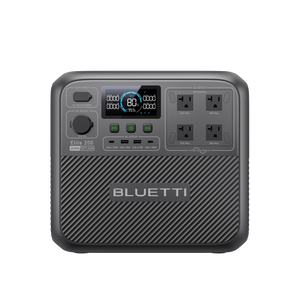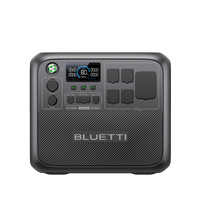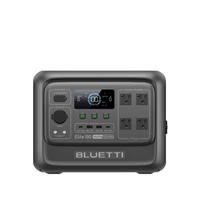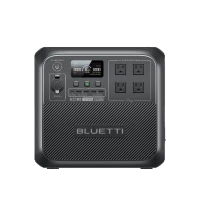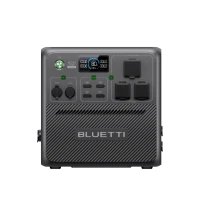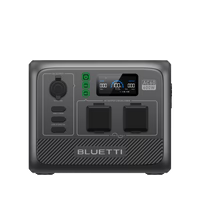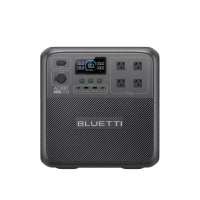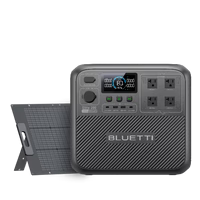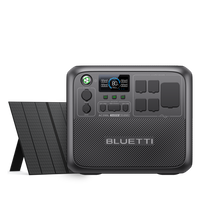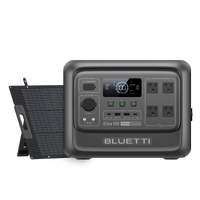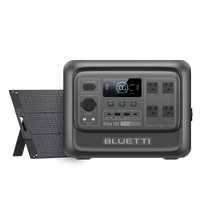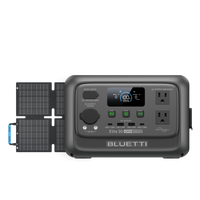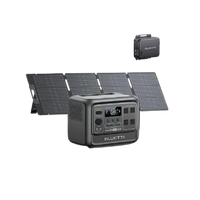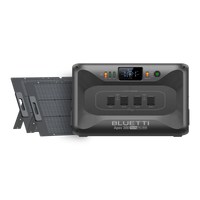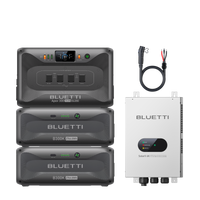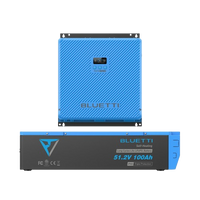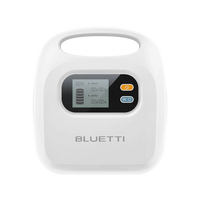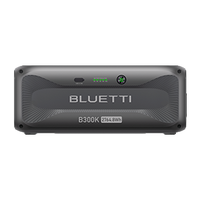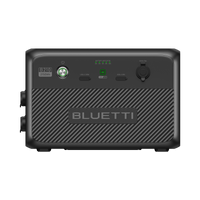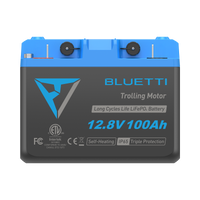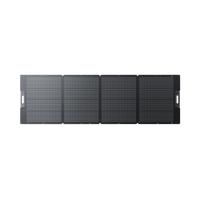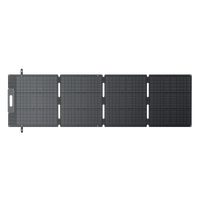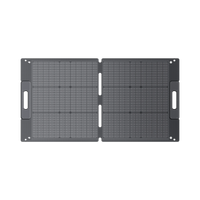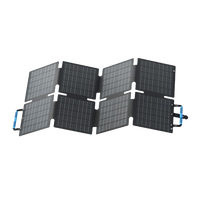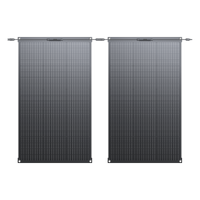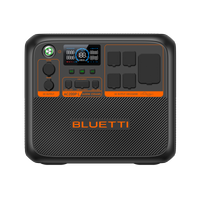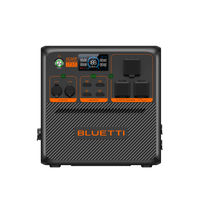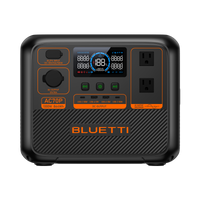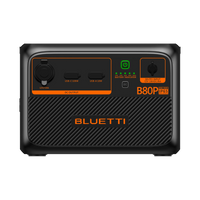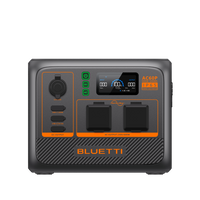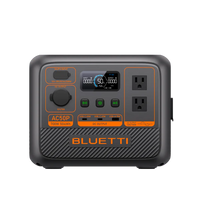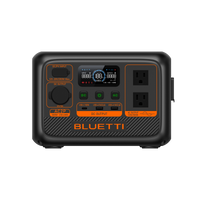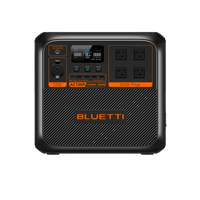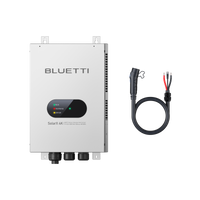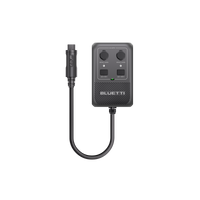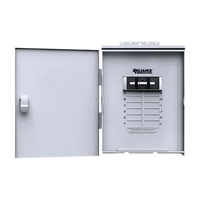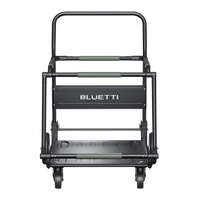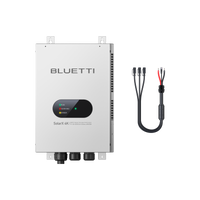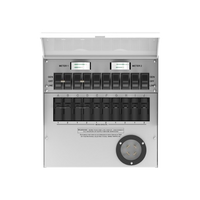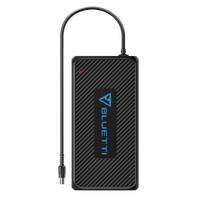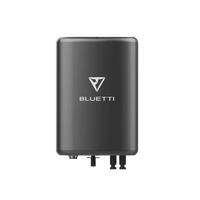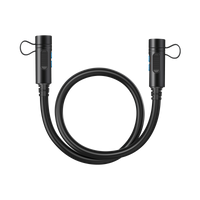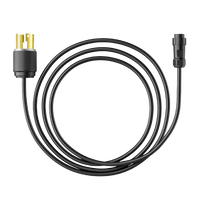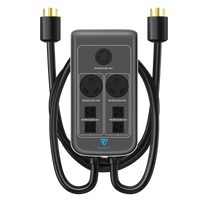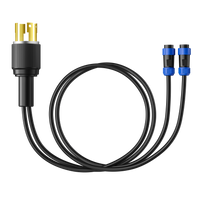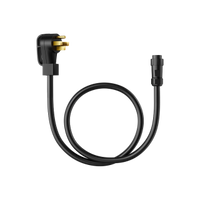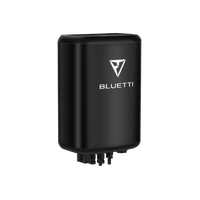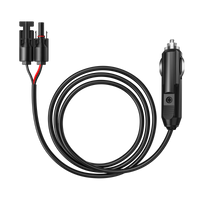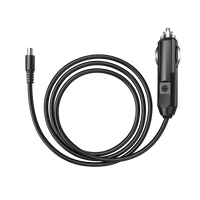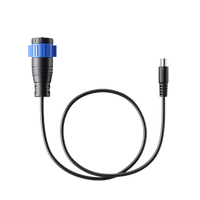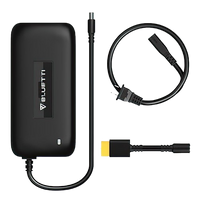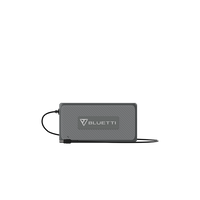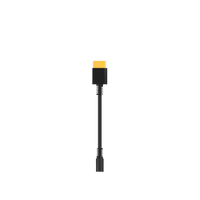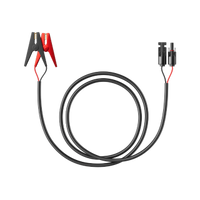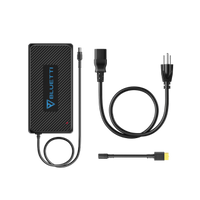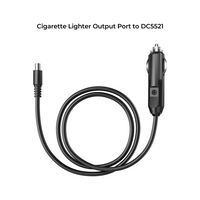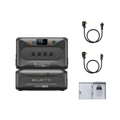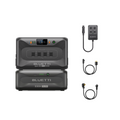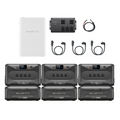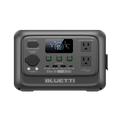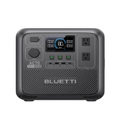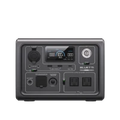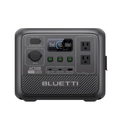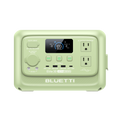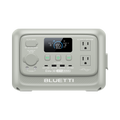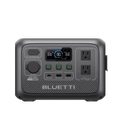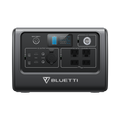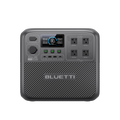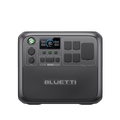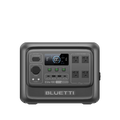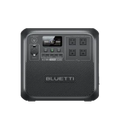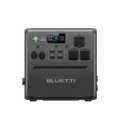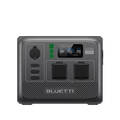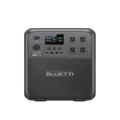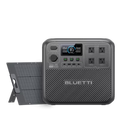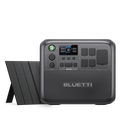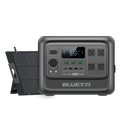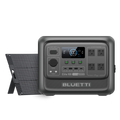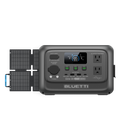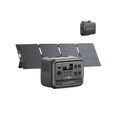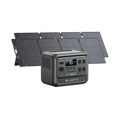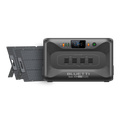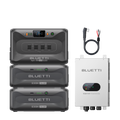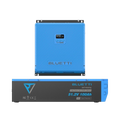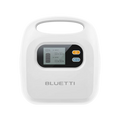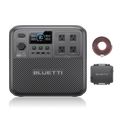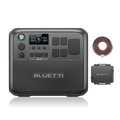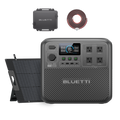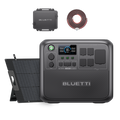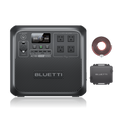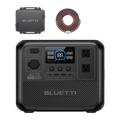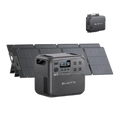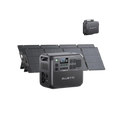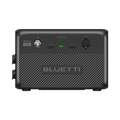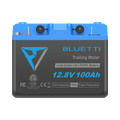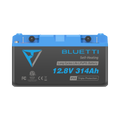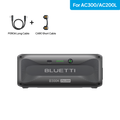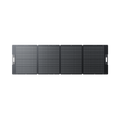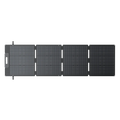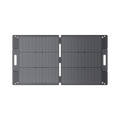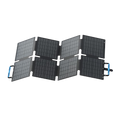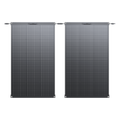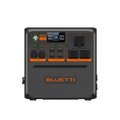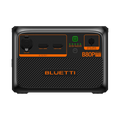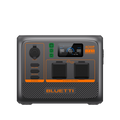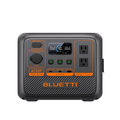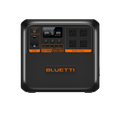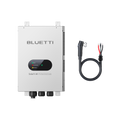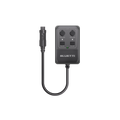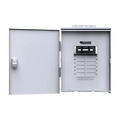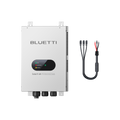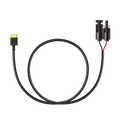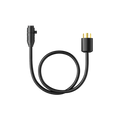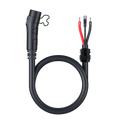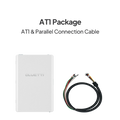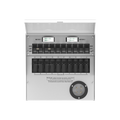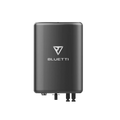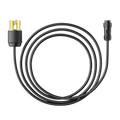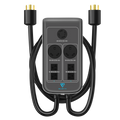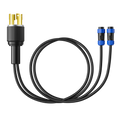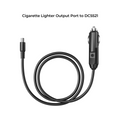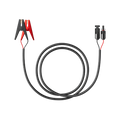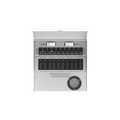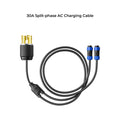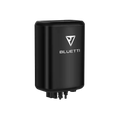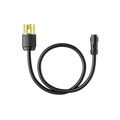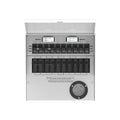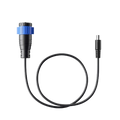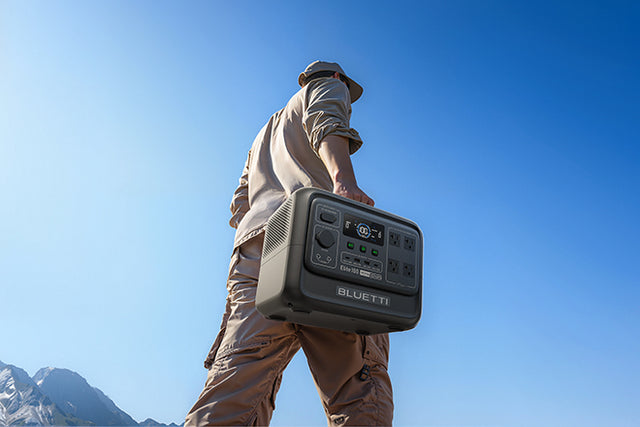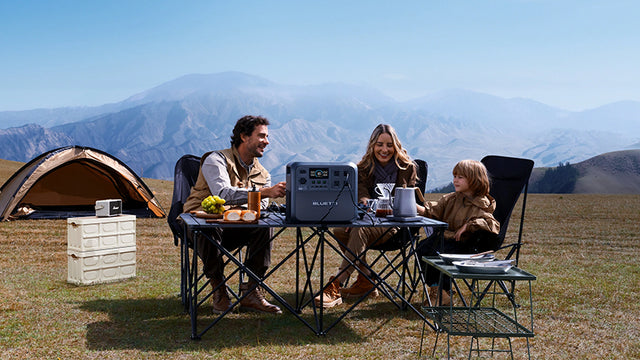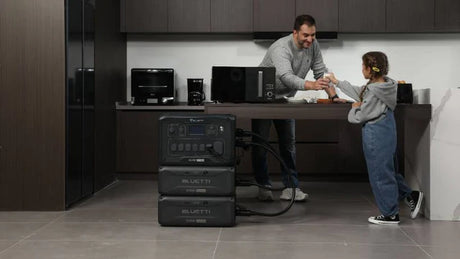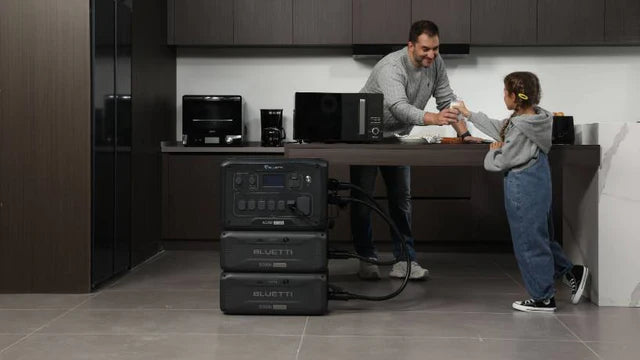Deux des principales sources d'alimentation de secours pour les habitations sont généralement les générateurs solaires et les générateurs au propane. Chacune présente des avantages et des inconvénients spécifiques, selon les besoins, les préférences personnelles et le budget. Mais quelle est la solution idéale pour votre maison ? Dans cet article, nous allons examiner le fonctionnement des générateurs solaires et des générateurs au propane, leurs points forts et leurs points faibles, ainsi que leurs principales différences. Nous verrons également les meilleures options de générateurs disponibles pour votre domicile.
Comment fonctionne un générateur solaire ?
En d'autres termes, cette source est un dispositif qui produit et stocke de l'énergie électrique d'origine solaire pour divers usages. Cet instrument fournit de l'électricité à des appareils et équipements domestiques, notamment électroniques, lorsque l'accès à l'électricité est impossible ou que le réseau électrique principal est totalement défaillant. En résumé, les générateurs solaires sont idéaux pour les activités de plein air, comme le camping, les voyages en camping-car ou même la navigation de plaisance.
Les quatre principaux éléments présents dans un générateur solaire sont :
- Panneaux solaires. Ce sont celles qui captent la lumière du soleil et la convertissent en courant continu.
- Contrôleur de charge. Il assure un flux d'électricité contrôlé des panneaux solaires vers la batterie, protégeant ainsi cette dernière contre la surcharge et la décharge excessive.
- Batterie. C'est là que l'énergie produite est généralement stockée pour une utilisation ultérieure. Il peut s'agir d'une seule batterie ou de plusieurs batteries connectées.
- Onduleur. Il convertit le courant continu (CC) de vos batteries en courant alternatif (CA) nécessaire à la plupart de vos appareils et équipements.

Avantages et inconvénients d'un générateur solaire
Les générateurs solaires présentent tous des avantages et des inconvénients. En voici quelques-uns :
- Pas de frais de carburant : Alors que les générateurs au propane nécessitent l'achat et le stockage constants de réservoirs de remplissage, les générateurs solaires garantissent une alimentation électrique continue à domicile sans avoir à alimenter le générateur.
- Approvisionnement énergétique inépuisable : L'énergie solaire est une énergie renouvelable, et le soleil se lève tous les jours ; vous pouvez donc vous attendre à ce que cette énergie soit disponible tout au long de votre vie.
- Énergie écologique : Les générateurs solaires produisent de l'électricité exclusivement à partir d'une source renouvelable. Ils n'émettent aucun gaz ni substance polluante susceptible de nuire à l'environnement ou aux êtres vivants qui nous entourent.
- Silencieux et nécessitant peu d'entretien : En fonctionnement, les groupes électrogènes solaires sont fluides et silencieux, sans bruit ni vibrations. Contrairement aux générateurs à propane, le générateur solaire comporte peu de pièces mobiles, ce qui réduit considérablement les besoins d'entretien et de réparation.
En revanche, les générateurs solaires présentent aussi certains inconvénients :
- Coûts initiaux élevés : Comparativement aux générateurs au propane, les générateurs solaires sont très coûteux à l'achat. L'acquisition de panneaux solaires, de batteries, de régulateurs de charge et d'onduleurs représente un investissement relativement important pour garantir leur pleine efficacité, notamment en période de forte consommation.
- Recharge lente : Puisqu'un générateur solaire a besoin du soleil pour recharger ses batteries, la recharge ne peut se faire que le jour et par temps clair. Il peut même falloir une journée entière, voire plusieurs jours, pour qu'une batterie alimentée par un générateur solaire atteigne sa capacité maximale.
- Alimentation électrique peu fiable : Le générateur solaire a une puissance de sortie limitée, proportionnelle à la taille et à la capacité de ses batteries et de ses onduleurs. Il ne peut pas alimenter toute la maison ni les appareils électroménagers à forte consommation pendant des périodes relativement longues.
Comment fonctionne un générateur à propane ?
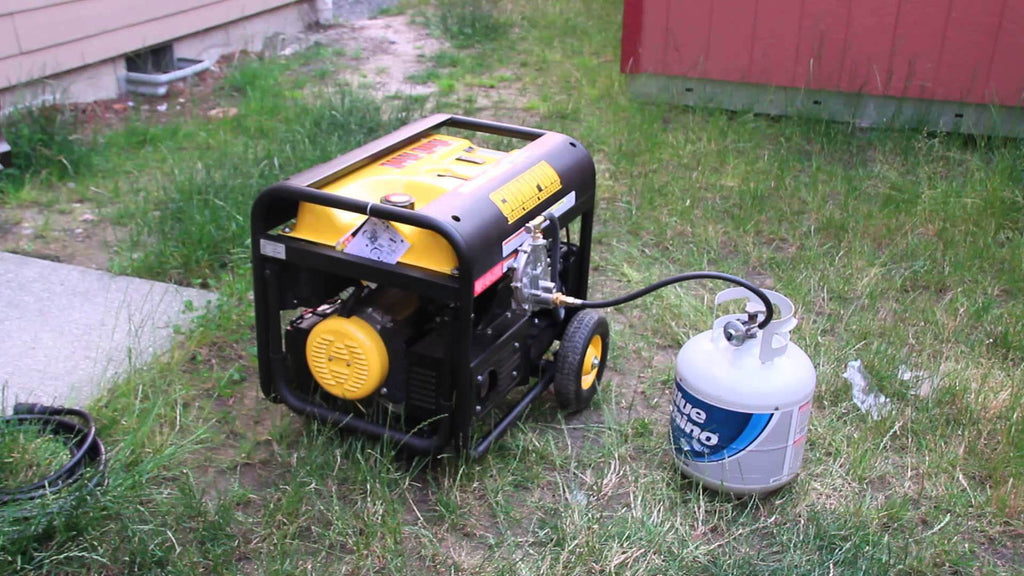
Un générateur au propane est un appareil qui utilise le propane comme combustible pour produire de l'électricité. Le propane est stocké dans des réservoirs ou des bouteilles pouvant être raccordés au générateur. Un carburateur mélange le propane à l'air et injecte ce mélange dans le moteur une fois le générateur en marche. Le moteur comprime alors le mélange et l'enflamme, produisant ainsi de l'énergie mécanique.
L'énergie mécanique fait tourner une génératrice composée d'un rotor et d'un stator, éléments qui transforment l'énergie mécanique en énergie électrique. La rotation du rotor à l'intérieur du stator génère un champ électromagnétique qui induit un courant électrique. Ce courant est ensuite dirigé vers un onduleur qui le convertit de courant continu (CC) en courant alternatif (CA). Le courant alternatif peut être utilisé dans de nombreux appareils électroménagers. Il s'avère indispensable en cas de panne de courant, comme lors d'urgences ou de coupures d'électricité.
Avantages et inconvénients d'un générateur au propane
Les générateurs au propane présentent des avantages et des inconvénients. Il est donc important de les connaître avant d'en acheter un. Voici quelques avantages liés à l'utilisation de générateurs au propane :
- Alimentation électrique fiable : Contrairement aux générateurs solaires dont les batteries nécessitent la lumière du soleil pour se recharger, les générateurs au propane offrent une alimentation électrique stable et continue, quelles que soient les conditions météorologiques. Ils fournissent de l'électricité la nuit ou par temps nuageux, sans aucune interruption.
- Puissance de sortie plus élevée : Les générateurs au propane sont capables de produire plus d'énergie que les modèles solaires, compte tenu de la taille et de la capacité de leurs moteurs et onduleurs. Ils peuvent donc alimenter de nombreux appareils énergivores, tels que des réfrigérateurs, des climatiseurs ou des radiateurs.
- Portabilité: Ils sont portables et pratiques à utiliser car ils fonctionnent au propane, qui peut être facilement mis en bouteille, acheté, transporté, rempli et transporté avec facilité et commodité.
En revanche, les générateurs au propane présentent aussi certains inconvénients :
- Durée de vie courte : Les générateurs au propane ont généralement une durée de vie plus courte que les générateurs solaires. Cela s'explique principalement par leur usure rapide, ce qui entraîne leur remplacement plus fréquent. De plus, ils comportent davantage de pièces mobiles susceptibles de se casser.
- Rendement énergétique inférieur : L'un des principaux inconvénients des générateurs au propane par rapport aux générateurs solaires réside dans leur moindre rendement énergétique. En effet, la production d'électricité nécessite une plus grande quantité de propane, ce qui peut engendrer des coûts d'exploitation plus élevés. De plus, le propane est un gaz non renouvelable polluant, émetteur de gaz à effet de serre.
- Stockage de carburant encombrant : Le propane nécessaire à ces générateurs requiert des réservoirs ou des bouteilles volumineux, lourds et encombrants, qui peuvent occuper un espace considérable et qu'il faut parfois déplacer pour les remplir. De plus, leur manipulation inadéquate présente un risque d'incendie et d'explosion.
Principale différence entre un générateur solaire et un générateur à propane
Voici quelques différences essentielles entre les générateurs solaires et les générateurs au propane :
- Les générateurs solaires fonctionnent à l'énergie solaire, tandis que les générateurs au propane dépendent du gaz.
- Les générateurs solaires sont durables, écologiques et leur coût d'entretien est minimal, tandis que les générateurs au propane sont jugés non durables et coûteux en carburant, produisant des gaz équivalents aux émissions de gaz à effet de serre.
- Un générateur solaire est une source d'énergie beaucoup moins puissante, plus petite, moins fiable et dépendante des conditions météorologiques, tandis qu'un générateur au propane peut être plus puissant, fiable par tous les temps et fonctionner à tout moment.
- Les générateurs solaires sont plus faciles à utiliser et à déplacer, tandis que les générateurs à propane peuvent être très encombrants ; ils sont généralement installés sur de grands terrains.
Quel générateur est le mieux adapté à votre maison ?
Kit générateur solaire BLUETTI AC200MAX + 2B230 + 3PV200

Ce système comprend un onduleur fournissant une puissance de 2 200 W en courant alternatif sinusoïdal pur, capable de supporter des surtensions jusqu'à 4 800 W. Sa batterie LiFePO₄ de 2 048 Wh est extensible à 6 144 Wh avec deux modules B230 ou jusqu'à 8 192 Wh avec trois modules de la série B300. Le kit propose sept modes de recharge : secteur, solaire, voiture électrique, générateur, batterie au plomb, double alimentation secteur et alimentation secteur + solaire.
Ce kit comprend également un système de contrôle et de surveillance intelligent et très intuitif, accessible à distance via l'application BLUETTI. Il s'avérera donc très utile pour répondre aux besoins d'une personne recherchant un générateur solaire puissant, performant et flexible permettant d'alimenter simultanément de nombreux appareils dans sa maison, tels qu'un réfrigérateur, une télévision, des ordinateurs portables, des ventilateurs, des lumières, etc.
Kit générateur solaire BLUETTI AC300 + B300 + 3*PV200
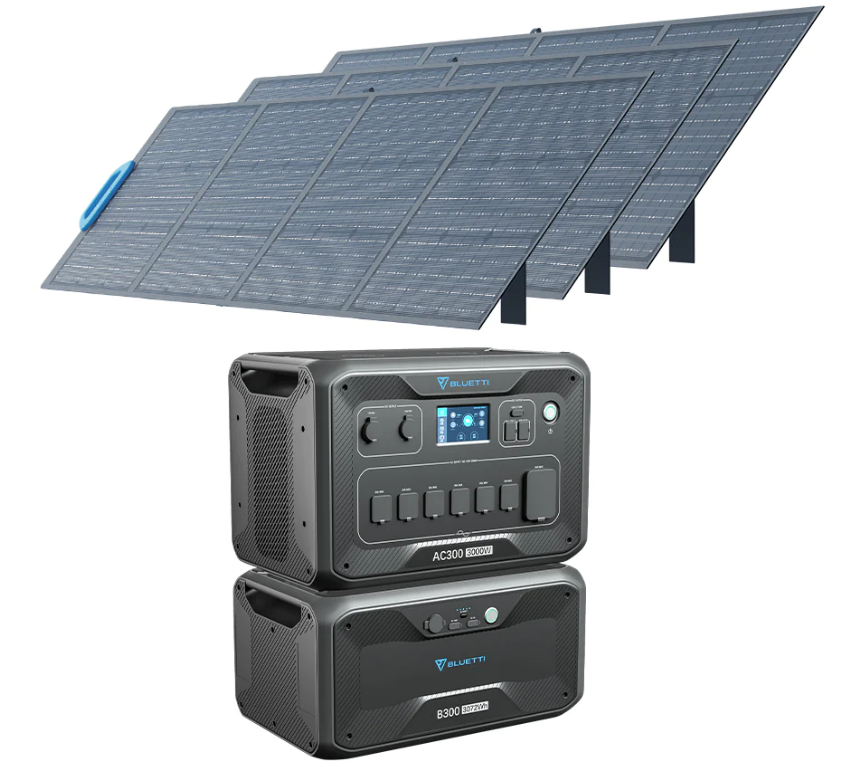
Ce kit comprend un onduleur de 3 000 W pour courant alternatif sinusoïdal pur, une batterie LiFePO4 de 3 072 Wh et trois panneaux solaires monocristallins haute efficacité de 200 W, offrant une puissance de crête de 12 288 Wh grâce à quatre modules B300. Il propose sept modes de charge : secteur, solaire, voiture, générateur, batterie au plomb, double alimentation secteur et alimentation secteur + solaire. De plus, il offre la possibilité d'alimenter un appareil à forte consommation avec une sortie 120 V/240 V grâce à un système de couplage monophasé 240 V, ainsi qu'une alimentation de secours domestique 24 h/24 et 7 j/7 avec basculement automatique sur batterie en cas de coupure de courant.
Les deux kits comprennent le panneau solaire BLUETTI PV200, doté de panneaux pliables et portables revêtus d'ETFE résistant à l'usure pour les protéger de la poussière et de la corrosion. Ils sont ainsi compatibles avec la plupart des générateurs solaires utilisant des connecteurs MC4 et peuvent être facilement connectés en parallèle ou en série.
Réflexions finales
Choisir entre un générateur solaire et un générateur au propane pour votre maison dépend entièrement de vos besoins, de vos envies et de votre budget. Comme le montrent les considérations générales ci-dessous, ces deux options présentent chacune des avantages et des inconvénients. Plus propre, silencieux et quasiment sans entretien, un générateur solaire est plus cher, se recharge lentement et sa puissance est limitée. À l'inverse, un générateur au propane est moins cher, se ravitaille plus rapidement et produit plus d'énergie ; ses seuls inconvénients sont la pollution, le bruit et un entretien plus fréquent.Il est important que ces avantages et inconvénients soient examinés de manière à pouvoir faire des choix adaptés à son logement.






